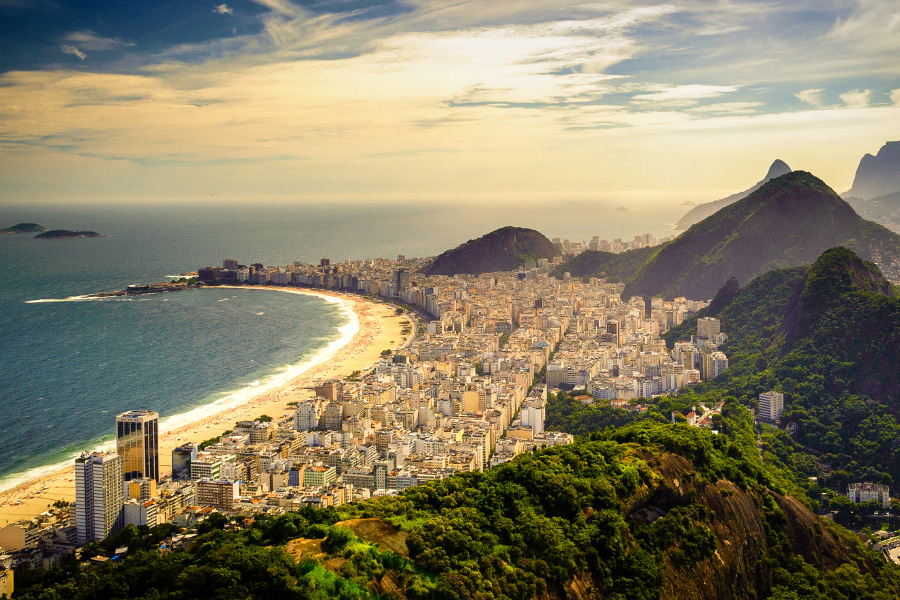Betting in Brazil: mixed findings in report on consumer finance impact

Santander bank has published a report looking at the impact of gambling in Brazil on consumer finances
Brazil.- A report from Santander bank has given more fuel to the recent pushback against Brazil’s planned regulation of online gambling from January 1. While the report has mixed findings, it suggests that gambling has had a “mostly negative” impact on consumer financial health.
Santander’s report cites a Brazil Chamber of Foreign Trade study that found that 1.3 million people entered default due to online gambling in H1. It also cited an increase in personal loans, but there’s no evidence that this was related to gambling.
However, the findings are not clear-cut. The report suggests that it was the delay in launching a regulated market that caused gambling in Brazil to increase as a result of the boom in the grey market. “The seven-year gap between the legalisation and the regulation of online gambling has led to untamed growth,” the report says. That suggests that prohibition is unlikely to be a solution.
It concludes: “Based on data on Brazil financial system, signals are mixed. It is hard to conclude if the increase in online gambling has been harming household financial health so far.”
The bank also calculated that net betting revenue in Brazil accounts for 0.6 to 2.1 per cent of GDP and would account for 1 to 3.3 per cent of household consumption in 2024. The government is expected to collect between R$3 and R$3.4bn in tax revenue in 2024 and up to R$10bn in 2025.
Growing political opposition to online gambling in Brazil
Brazil’s new regulatory framework for online gambling has not yet come into force – licensed gambling is to launch on January 1. However, already an attempt is being made to ban the activity. Bill 4,031/2024 presented by senator Sérgio Petecão aims to revert the legal framework for online gambling in Brazil approved by President Lula de Silva last December due to concerns over consumer debt and gambling addiction. Rodrigo Pacheco, president of the Brazilian Senate, has also backed the move.
However, the resurgence of negative attitudes to the sector is largely due to a sole report about welfare recipients gambling with money intended for essentials. However, the survey group used for the study was small, questioning just 1,337 consumers. It was conducted by the retail sector trade association Sociedade Brasileira de Varejo e Consumo (SBVC), which has a vested interest of its own.
José Francisco Manssur, formerly special secretary at the Ministry of Finance, has warned that banning online gambling again would be a step backwards.
In an opinion piece in Poder 360, he wrote: “Banning gambling now, before or soon after companies are authorised and before the practical results of regulation are verified would mean that the entire process developed over the last two years would have been for nothing, and all the effort and resources of the companies interested in operating in the regulated market to establish themselves in Brazil would have been in vain.
“Moreover, it would send the message that all the regulatory policy widely discussed between the government and Congress would have been make-believe. What image of Brazil’s legal stability would this give to the world?”
Manssur also argues that a ban would hit jobs and wouldn’t necessarily even reduce gambling, noting the wide consumption of alcohol in the US during the prohibition era.
“The effectiveness of a simple prohibition as a means of preventing people from becoming addicted to gambling, for example, is very much debatable. And what about the hundreds of thousands of jobs already created in the country in this segment? Will they simply be lost, without us knowing whether regulation could effectively combat negative externalities?”
Manssur stressed that Brazil’s regulations were considered some of the “most modern and restrictive” in the world. Like the Santander report, he suggested the long delay between legalisation in 2018 and senate approval in December 2023 was part of the cause of any problems in the sector.
The new Brazilian gambling regulator SPA set an October 1 deadline for licence applications from operators that wished to continue operating once online gambling becomes regulated. Under Ordinance 1,475, only those companies that submitted licence applications can continue operating between October 1 and December 31.











